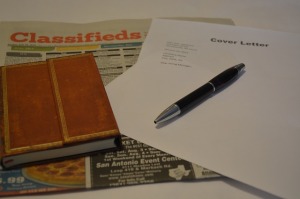
As I was finishing up my PhD, I followed the relevant advice I received from colleagues, acquaintances, and linkedin posts quite faithfully: I carefully considered the traditional and non-traditional post PhD routes; I used AAAS’s IDP tool to find new opportunities and to determine key words to use in job search engines; I called up a lot of people I hadn’t seen for a long time while I was in the dissertation research vacuum and had a great time partying with them networking; I polished my linkedin profile, tailored my resume; and I looked for places where I’d want to work, and people with whom I’d like to work.
It took about nine applications before I got my first interview, another eight before I got my second. I knew I didn’t want to do a post-doc, but more and more it looked as if that was the only route available…that or I’d actually have to relocate.
Since relocating was not an option, I scanned the major non-profit, research institutes for awesome labs. The idea was that if I was going to cave and do a post-doc it would have to be with a lab that:
- Did great research
- Had awesome people – and by awesome, I really mean: energetic, excited, intellectually hungry, diverse–with a dash of humor
- Had an awesome P.I. – Because P.I.’s set the tone for their labs (I know, because I did my dissertation research under an awesome P.I.)
And then I saw this post on one of the TSRI lab websites, which included ‘awesomeness’ as one of their criteria. By the tone of the post it even looked like their definition of awesome might even match mine. Ah-hah! Finally, a chance to write a creative cover letter and to poke a little fun at the usual mind-numbing application-related docs I’d been working with for the past few months. (Before you say that I was doing it wrong because application-related docs should not be mind-numbingly dull…consider this: all docs look dull after you’ve polished/revised/tailored them for months on end.)
Now, I could easily justify writing a creative risky cover letter.
Worst case scenario– My wacky creative cover letter would not land me an interview, but at least (hopefully) the awesome P.I. who was doing insanely awesome research might be amused for a bit, and I would have had the pleasure of amusing us both.
Best case scenario– I get a chance to meet the awesome P.I., learn more about his lab, maybe even join as a post-doc
Unexpectedly AWESOME scenario— I get a non-post-doc position with said awesome P.I. enabling me to utilize skills that I did not think would see the light of day in even my imagined ideal job.
But I’m really getting ahead of myself with the Unexpectedly AWESOME scenario. Let’s just end this post with the initial reaction. I received a response from the awesome P.I. who wanted to understand how all the strange skills and interests described in the risky awesome cover letter would fit into his lab.
Next: finding the fit


